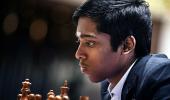Chinese President Xi Jinping opened the COVID-19 delayed 19th Asian Games on Saturday in the Eastern city of Hangzhou during a shiny and at times raucous opening ceremony on Saturday.
Spectators in the city's 80,000 capacity stadium let out a huge roar as Xi was introduced and walked in to sit with visiting dignitaries including International Olympic Committee President Thomas Bach and Syrian President Bashar al-Assad.
The Games, delayed a year due to China's measures to combat the COVID-19 pandemic, will be the country's biggest sporting event in over a decade in several metrics, with around 12,000 athletes from 45 nations competing in 40 sports.
After the Chinese flag was brought out, the first team out was Afghanistan, whose female athletes, based abroad due to sport for women being banned by the Taliban, walked together with their male counterparts. Their flagbearers carried the tri-colour flag for Afghanistan which is used by international resistance movements and shunned by the Taliban.
Several teams including Chinese Taipei were vocally welcomed by the spectators, but none more than the home team, whose athletes are expected to dominate the medals table once again.
They also mark a stark contrast to the cheerless Beijing 2022 Winter Olympics which took place under China's strict zero COVID conditions.
“I feel excited, particularly as a Hangzhou local," said a man surnamed Zhao on his way into the stadium. "It’s a great chance to show the world how nice our city is… it was also delayed by a year. But that gave us a chance to prepare even better.”
Roads in a sizeable "traffic control area" around the city's Olympic stadium were blocked off, at least one metro station was shut and other Games centres were closed and deliveries were disrupted on Saturday.
Some locals felt the security measures, always tight when Xi makes a visit, were overdone.
"I think it shows they're too nervous, right?", said 45-year-old Hangzhou resident Li Jian. "I think we should be a little more confident."
One local social media user was told due to safety rules surrounding the Games a pencil sharpener they had ordered could not be delivered. "How dangerous is the sharpener?," the user wrote. "Will I be able to use it to kill foreign country leaders?"
Organisers have not disclosed spending on the Games, though the Hangzhou government has said it spent more than 200 billion yuan ($30 billion) in the five years through 2020 on transport infrastructure, stadiums, accommodation and other facilities.
Organisers hoped a high-tech opening ceremony on Saturday will help drum up excitement for the Games. Interest at home has been muted as the economy sputters and some question the cost of hosting the mega-event.
Dozens of smiling volunteers greeted arriving journalists in Hangzhou this week, with some expressing relief that the event was finally getting started.
The official slogan of the event, "Heart to Heart, @Future", represents the goal of uniting the people and countries of Asia through these games, officials have said, but geopolitical tensions and rivalries threatened to overshadow that effort this week.
Xi called on the West to lift sanctions on Syria and offered Beijing's help in rebuilding the war-shattered country on Friday during rare talks with the long-ostracised Syrian leader Bashar al-Assad.
Also on Friday, India protested over a visa issue that affected three of its athletes at the games, leading India's sports minister Anurag Thakur to cancel his trip.
Japan’s top government spokesperson said on Tuesday that Tokyo would do its utmost to ensure the safety of Japanese nationals in China as the release of treated radioactive water from the Fukushima nuclear power plant into the sea has chilled ties.
"We should promote peace through sports, adhere to the principle of goodwill towards neighbours and mutual benefit and... resist the cold war mentality and confrontation between camps," Xi told dignitaries including Bach and Assad at a banquet before the ceremony on Saturday, state news agency Xinhua reported.













 © 2025
© 2025